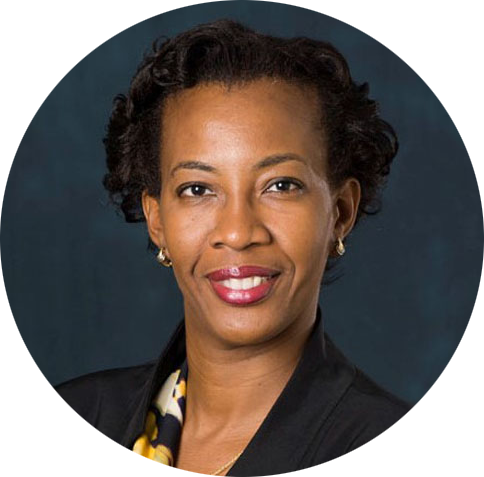Tanya Goddard FCIArb
Tanya is Vice Chair of the CIArb Barbados Chapter, mediator and attorney-at-law and tutor. She is also the Secretary General of the Arbitration and Mediation Court of the Caribbean, a dispute resolution centre.

1. Why have you decided to specialise in ADR?
I specialised in ADR because I was fascinated by the way it seamlessly combined many disciplines which I did not find in other aspects or types of law. In addition, I appreciated the way in which ADR often required parties to be dynamic and innovative in their problem solving.


2. What are the challenges women in ADR face in the early stages of their career?
There are many challenges, and it differs depending on where you are in the world and at what stage you enter ADR as a profession. It must be remembered that not everyone enters ADR “fresh out” of university. First, many people receive their exposure to ADR either by attending a university with an ADR programme or working for a law firm with an ADR practice. I was briefly introduced to ADR when I was studying overseas, so my path is somewhat different. I had to figure it out along the way.
Second, in my experience the number of women engaging in ADR cases does not seem to reflect the number of women who have undergone training. This indicates that there could be a hurdle for women between receiving a certification to actually engaging in ADR.
Finally, I have encountered both young and mature women entering ADR who are frustrated because the opportunities to engage in ADR in my region can be limited. It is difficult to obtain a mentor, shadow someone or to engage in ADR even on a volunteer basis. In addition, we often make the inevitable mistake of comparing our progress to our international colleagues where the environment and opportunities are greater.

3. What keeps you motivated in your career?
My motivation comes from two things. Firstly, I have senior practitioners in the ADR community who encourage me, offer support, manage my expectations, and give practical guidance. Secondly, when I participate in capacity building or any type of outreach, that is also very fulfilling.

4. What does breaking the bias mean to you?
Breaking the bias means that the system should by default include qualified female practitioners from diverse backgrounds. A woman being nominated in any proceedings or engaging in ADR should be the normal, including those of us from developing jurisdictions who struggle to even get on the playing field. I speak to male colleagues who try to get their female counterparts engaged but it is difficult if we lack the necessary experience. How does one get experience if the opportunities to engage are not present? ADR as a profession is therefore less rich because of this lack of diversity.

5. How has CIArb influenced your career?
CIArb has influenced my career because there is a congenial environment which promotes career development. If a fellow ADR practitioner finds out you are affiliated with CIArb it creates a comradery.
The benefits of membership are tremendous as CIArb is considered the flagship certification, so it creates confidence in your abilities.

6. If you could practice ADR in any other country, which would you choose and why?
There is no other country. I would like to practice truly international ADR which allows me to practice anywhere in the world so there is no need to make a choice.

7. Tell us about your interests.
I have too many interests to list but to name a few I have always been an avid reader, orchid enthusiast and absolute foodie. I also from time-to-time volunteer with a nonprofit charity organization with various projects.
The views expressed by the interviewees are their own and do not necessarily reflect the positions of CIArb and of the individuals or organisations associated with the initiative.